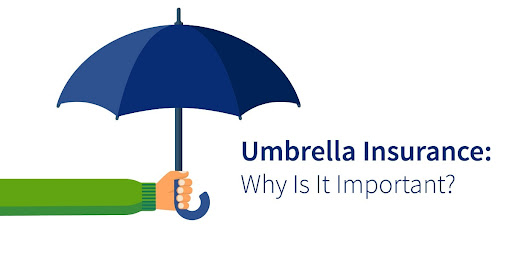When most people think of insurance, they focus on essentials—health, auto, home, or life. But what happens when your liability exceeds the limits of those basic policies? That’s where umbrella insurance comes in. Often misunderstood or overlooked, umbrella insurance can be a critical financial safety net—especially in today’s world where lawsuits are common and damages can be steep.
In this article, we’ll explore what umbrella insurance is, why it might be essential for you, and real-life examples that show its value.
What Is Umbrella Insurance?
Umbrella insurance is extra liability coverage that goes beyond the limits of your standard home, auto, or renters insurance policies. It steps in when those primary policies are maxed out due to a large claim or lawsuit.
For example, if you’re involved in a serious car accident and found liable for $750,000 in damages, but your auto insurance only covers $300,000, your umbrella insurance could cover the remaining $450,000—saving you from out-of-pocket financial ruin.
Who Needs Umbrella Insurance?
While it’s often marketed toward high-net-worth individuals, umbrella insurance isn’t just for the wealthy. You might need umbrella coverage if you:
-
Own a home or rental property
-
Drive frequently or have teenage drivers
-
Host guests regularly (think: backyard parties, pool use)
-
Own pets (dog bites can lead to large liability claims)
-
Post reviews online (you could be sued for defamation)
-
Participate in activities with liability risks, like coaching youth sports
-
Have significant savings or assets to protect
Anyone who could be sued for more than their base insurance covers should strongly consider umbrella insurance.
What Does It Cover?
Umbrella insurance provides broad protection, including:
-
Bodily injury liability (e.g., car accidents, dog bites, accidental falls)
-
Property damage liability (e.g., damage to another person’s vehicle or property)
-
Landlord liability (if you own rental units)
-
Personal liability (e.g., libel, slander, false arrest)
-
Legal defense costs even if you’re not at fault
What makes umbrella insurance unique is that it covers scenarios other policies don’t—especially personal lawsuits that can’t be filed under auto or home insurance.
What It Doesn’t Cover
Umbrella insurance does not cover:
-
Your own injuries or property damage
-
Business-related liability (unless you have business umbrella insurance)
-
Criminal or intentional acts
-
Contracts you’ve signed (e.g., a lease or business agreement)
It’s also important to note that umbrella insurance kicks in only after your base policy’s limits are exhausted. Think of it as a backup plan, not a replacement for core insurance.
How Much Does It Cost?
Surprisingly, umbrella insurance is very affordable given how much coverage it offers. According to the Insurance Information Institute, the average cost is:
-
Around $150 to $300 per year for $1 million in coverage
-
Each additional $1 million typically costs about $75 to $100 more
Given the potential legal expenses and settlement costs in today’s world, the cost of umbrella coverage is often a small price to pay for peace of mind.
Real-Life Examples
Example 1: Car Accident Liability
You cause a multi-car collision. Your auto insurance covers up to $250,000 in liability, but the other parties sue you for $900,000. Umbrella insurance would cover the remaining $650,000.
Example 2: Home Incident
A visitor trips on your icy sidewalk and suffers a serious injury, suing you for $600,000. Your home insurance covers $300,000. Umbrella coverage picks up the remaining $300,000.
Example 3: Defamation Lawsuit
You leave a bad review of a local business online. The business sues you for defamation, asking for $500,000 in damages. Umbrella insurance can cover legal defense and payout.
Also Check:
- Insurance Tips for First-Time Homebuyers
- Long-Term Care Insurance: Planning for the Future
- Green Insurance: What It Means and Why It’s Growing
- The Role of AI in the Future of Insurance
- Do You Need Renters Insurance? Here’s Why It Matters
Final Thoughts
Umbrella insurance isn’t glamorous, but it’s one of the smartest financial tools for protecting your future. Whether you’re a homeowner, a parent, or just someone active in daily life, you could face unexpected lawsuits that threaten your finances.
By investing in umbrella insurance, you gain peace of mind knowing you’re protected when things go beyond the ordinary.
Before deciding, talk to your insurance provider and ask:
-
What are my current liability limits?
-
What assets could be at risk in a lawsuit?
-
How much umbrella coverage would fit my needs?
Useful Resources to Explore:
